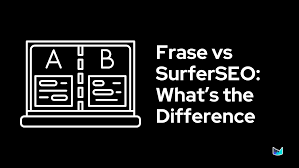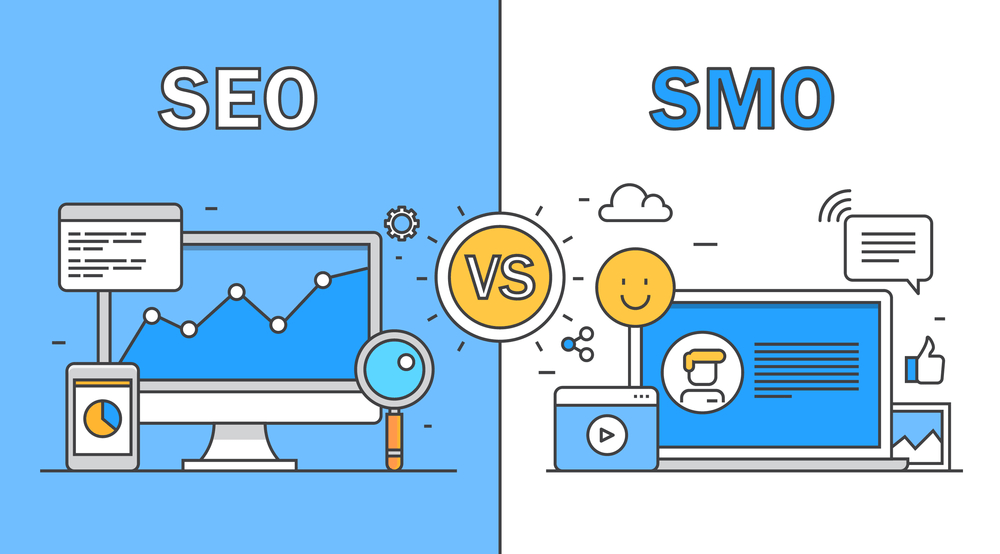Does AI content help with SEO? Digital marketers can’t seem to agree on this one. Google keeps tweaking its position on machine-generated text. You’ve probably heard both sides of the story – some people say AI content destroys rankings, others claim it’s a quick path to SEO success.
The reality sits somewhere in the middle. Google doesn’t automatically punish AI content. Quality matters more than the creation method. AI-generated content can actually boost SEO results with proper implementation. Many marketers still question if AI content performs well in Google searches or triggers penalties. This uncertainty comes from Google’s changing guidelines and mixed messages from SEO experts.
This piece will show you Google’s official stance on AI content and why machine-written text often misses the mark. You’ll find practical ways to combine AI tools with human expertise. We’ll share results from companies that tested AI content extensively and give you practical best practices to use in 2024. You’ll walk away with a solid plan to use AI in your content strategy without hurting your search rankings.
Google’s Official Stance on AI-Generated Content
Google has made its position clear about AI-generated content many times since 2022. The search giant’s message is simple: quality matters more than how you create the content.
E-E-A-T Guidelines and AI Content
Experience, Expertise, Authoritativeness, and Trustworthiness (E-E-A-T) matter for all content, including AI-generated material. Google looks at how well your content shows these qualities rather than checking who or what created it.
Here’s what makes AI content meet E-E-A-T guidelines:
- Experience: Your content should show real-world knowledge or direct contact with the topic
- Expertise: You need accurate information from qualified sources
- Authoritativeness: Good references and deep subject knowledge are vital
- Trustworthiness: Your information must be honest and reliable
The biggest problem with AI content shows up in the “Experience” part. AI tools often create generic content without proper guidance. Adding your personal experiences to AI drafts helps meet this vital E-E-A-T requirement.
Does Google Rank AI Content or Penalize It?
Google has clearly said they don’t penalize content just because AI created it. Google’s Search Advocate John Mueller says, “Content created by AI or ML is considered automatically generated content, which has been against our webmaster guidelines since the beginning.”
This statement confused many people. Google later explained that AI content works fine if it’s helpful, original, and created with people in mind. Danny Sullivan, Google’s Search Liaison, made it clear: “We haven’t said AI content is bad or against our guidelines. We’ve said, pretty clearly, content written primarily for search engines rather than humans is the issue.”
Google doesn’t use an “AI detector” to downgrade machine-written content. Their algorithms review all content using the same quality standards. Well-written AI content that helps users can rank just as high as human-written material.
Helpful Content System and AI Detection
The Helpful Content System looks for signs that show whether someone created content mainly for search engines instead of real people. This system doesn’t target AI content specifically – it finds unhelpful content no matter who or what created it.
The Helpful Content System reviews these key points:
- The content’s value compared to other search results
- Signs of first-hand expertise or deep knowledge
- Reader satisfaction versus the need to search again
Google keeps saying they don’t specifically find or penalize AI-generated content. A Google spokesperson puts it simply: “Our focus is on the quality of content, rather than how content is produced.”
In March 2023, Google updated their guidelines to say that “appropriate use of AI-generated content is not against our guidelines.” This showed a big change in how they talk about AI content.
The main point? Google cares if your content helps users – not whether AI helped create it. John Mueller said during a Google SEO office hours: “If you’re using machine learning tools to generate your content, it’s essentially the same as if you’re just shuffling words around, or looking up synonyms, or doing translation tricks.”
Your focus should be on creating content that truly helps your audience and adds something new to what’s already out there. AI detection shouldn’t be your concern.
Where AI Content Falls Short for SEO
The rise of AI writing tools hasn’t solved a crucial problem – machine-generated content still has major limitations that affect SEO performance. Let me get into the areas where AI content falls short and why human oversight matters so much.
Where AI Content Falls Short for SEO
Inaccurate Information and Hallucinations
AI tools often produce false information with surprising confidence. These “hallucinations” happen when AI creates incorrect data that looks real. CNET learned this lesson the hard way – they had to correct 41 out of 77 AI-written stories [92]. That means more than half their AI content had errors.
ChatGPT 4.0 makes up facts about 28.6% of the time when citing sources [122]. This makes fact-checking essential. A New York attorney learned this lesson after using ChatGPT for legal research. The AI made up several court cases and citations [84]. The judge caught these fake references and handed out heavy penalties.
AI hallucinations occur because:
- Language models predict text patterns without knowing what’s true
- They can’t fact-check themselves
- Their training data might have wrong information
The models also work with outdated information. ChatGPT has knowledge cutoff dates and can’t talk about recent events accurately [104].
Lack of Human Emotion and Storytelling
AI content usually sounds mechanical and fails to connect with readers [92]. This hurts SEO because engagement affects rankings.
Visitors who find content without emotional connection tend to:
- Leave pages quickly (higher bounce rates)
- Read less (lower dwell time)
- Don’t participate much
AI doesn’t deal very well with creative tasks and emotional depth [92]. It can’t tell personal stories or add real humor to text. Content without these human elements fails to build reader trust.
“Human perspective makes a text relatable and interesting, whether it’s sharing a personal experience or using humor, or addressing very specific pain points in the right way,” notes one expert [122]. This human touch leads to more engagement, comments, and social sharing – signals that influence search rankings.
Duplicate and Unoriginal Content Risks
The biggest SEO problem with AI content comes from its lack of originality. Language models use existing information and just rephrase what’s already online [121]. This creates several issues.
Many websites using similar AI prompts end up with almost identical content [122]. Google’s SpamBrain system targets this kind of mass-produced material specifically [122].
AI content stays at surface level without adding new insights. One source puts it clearly: “AI-generated content…lacks the depth and uniqueness required to rank well” [124].
Google’s recent helpful content update hit about 45% of low-quality content across the web [121]. Sites that publish lots of AI content without human input risk losing rankings.
The problem isn’t AI authorship – it’s that AI text often lacks originality, expertise, and value beyond existing content. An expert explains it well: “Google isn’t always the best source of information when it comes to AI. But here’s the thing most people get wrong: the ‘helpful content’ part of Google’s search results means exactly what it is. If that content was actually helpful to Google’s users, why would they penalize that if it led to higher engagement rates with content?” [121]
How to Use AI Content Without Hurting SEO
A smart approach that combines machine efficiency with human creativity helps you add AI to your SEO strategy successfully. Here’s how to use AI while keeping your search rankings intact.
Use AI for Keyword Research and Topic Clustering
AI does an excellent job at analyzing vast amounts of search data and spotting patterns that humans might miss. Modern AI tools process search trends, spot keyword relationships, and create topic clusters faster than manual methods.
To do keyword research with AI effectively:
- Use AI to analyze competitor content and identify keyword gaps
- Let algorithms cluster related search queries based on shared user intent rather than just shared words
- Apply AI to spot when different keywords address the same user need
Topic clusters built around central “content pillars” help search engines see that you cover topics thoroughly. AI creates these structures automatically and groups related keywords into meaningful clusters that match how search engines understand content relationships.
Generate Outlines and Drafts, Not Final Posts
AI writing tools work best as first-draft partners instead of replacement authors. These tools handle about 80% of the basic work, from collecting keyword data to building structured outlines.
Today’s free outline generators can:
- Create detailed content outlines based on relevant keywords
- Suggest headings, subtopics, and keyword placements based on top-ranking competitors
- Help you create more high-quality content quickly
Some AI tools look at top-performing pages to give strategic content suggestions about headings, subtopics, and keyword placement. Advanced tools can also assess search intent, competitor outlines, and key SEO elements like internal linking opportunities.
Add Human Edits for Tone, Accuracy, and Value
Raw AI output rarely meets Google’s E-E-A-T guidelines without human touch. A study found that 90% of marketers believe human editing improves the quality and credibility of AI-generated content by a lot.
Human editors add several vital elements:
- Emotional connection that AI lacks (60% of consumers trust content that evokes emotional response)
- Fact-checking to prevent AI “hallucinations” and inaccuracies
- Brand voice consistency and personality
- Original insights and expert validation
The best approach treats AI as your assistant – quick and precise but needing guidance from human creativity. Your team can focus on what humans do best – adding original insights, crafting strategic narratives, and matching content with brand voice after AI handles the basic work.
Note that Google doesn’t penalize AI content simply because it’s AI-generated. Google states, “Appropriate use of AI is not against our guidelines”. The key is using AI to create “original, high-quality, people-first content demonstrating qualities of E-E-A-T”.
Real-World Results of AI Content in SEO
Real-life data from companies that use AI for content creation shows interesting patterns about its SEO effectiveness. The actual experiments reveal how AI content performs in search results.
SEOwind’s 116 Article Experiment
SEOwind ran an impressive test by publishing 116 AI-generated articles in just 30 days using their “CyborgMethod” strategy.
Their results stood out:
- 77% increase in clicks
- 124% boost in impressions
SEOwind’s focus remained on topics like SEO, blogging, and AI tools. Their approach wasn’t purely automated – they used a system where AI created drafts that humans refined. This balance became a vital part of their success.
CTR Improvements from AI-Generated Headlines
Danish news outlet TV 2 Fyn’s 46 A/B tests compared AI-written headlines with human-crafted ones. The results were striking:
AI-generated headlines won 46% of the tests, while human-created headlines won only 24%. The AI-driven headlines boosted clickthrough rates by 59%.
Some publishers saw even better results. News outlets using AI headline generators experienced clickthrough rate increases of 20-30%. The New York Times saw a 10% increase in click-through rates after they started using AI-generated headlines.
Hybrid Approaches That Outperform Pure AI
Pure AI content rarely beats human-written material. All the same, combined approaches show promising results.
Joel Popoff, Axwell’s CEO, found AI-generated product descriptions too generic at first. His company switched to a hybrid model where AI created drafts and human teams refined them. This cut content creation time by 30% while keeping the content authentic.
A Real-Time Location Services provider worked with Avid Demand on an AI-supported SEO strategy. Their results after one year were remarkable – keyword rankings grew from 20 to 790 (a 3850% increase), and organic traffic jumped by 945%.
Human-written content still leads in overall SEO performance. Studies show that human-written content ranks better for keywords and draws more web traffic than pure AI content. Yet hybrid approaches sometimes perform better than purely human-written content in search visibility.
The evidence points to one clear conclusion: AI content can work well in search, especially for headline optimization and first drafts. The quickest way to get results comes from combining AI’s efficiency with human expertise.
Best Practices for AI Content and SEO in 2024
Quality matters more than quantity when it comes to AI content strategies for SEO in 2024. Let’s get into the best practices that line up with what Google wants.
Be Transparent About AI Usage
Search engines and your audience trust you more when you’re transparent. Google actively encourages you to disclose when AI helps create content. This approach promotes credibility and matches ethical digital publishing standards.
You can be transparent by:
- Adding clear disclaimers about AI’s role in content creation
- Including statements about human editorial oversight
- Creating accurate bylines that show the creation process
Your readers can better judge content reliability when you’re honest about AI use. This straightforward approach builds stronger audience connections while you retain control.
Focus on Intellectual Influence and Originality
AI has made information more available to everyone. The real value in 2024 comes from how you shape meaning and share unique viewpoints.
Your original AI content should:
- Share personal experiences that AI can’t copy
- Give interpretations beyond basic data
- Show authentic viewpoints that build trust
AI should magnify your unique voice, not replace it. Your team can add deeper insights through wisdom, ethics, and judgment that machines can’t match when AI handles the data processing.
Prune Low-Value or Outdated AI Content
Your overall SEO performance improves when you remove or update pages that don’t work well. This matters even more with AI-generated content that quickly becomes outdated.
Here’s how content pruning works:
- Regular audits help find AI content that isn’t performing well
- You decide to refresh, unite, or remove content
- Quality takes priority over quantity across your site
Your rankings can improve substantially with regular pruning every 3-6 months. Larger websites need quarterly maintenance. This frees up crawl budget for your best pages and helps distribute link authority better throughout your site.
Conclusion
Google’s guidelines about AI content and SEO keep changing. This piece shows that Google doesn’t automatically penalize AI-generated content. Quality matters more than the creation method.
E-E-A-T principles remain crucial for all content types. AI doesn’t deal very well with the “Experience” component, which makes human involvement crucial. Google has stated clearly that useful, original content aimed at people can rank well – whether AI or humans create it.
AI content faces some tough challenges. Search performance suffers from AI’s tendency to hallucinate, its lack of emotional depth, and the risk of duplicate content. These limitations explain why pure AI content rarely tops search rankings.
What works best? A balanced mix of AI’s capabilities and human creativity. AI shines at analyzing data, researching keywords, and creating drafts. Human editors must add accuracy, emotional connection, and fresh insights. This teamwork combines machine’s speed with human understanding.
Real-life tests back this up. SEOwind’s study of 116 articles and several headline tests prove that hybrid approaches beat pure AI content in search results. Companies using these methods have seen their traffic and rankings soar.
The path to success in 2024 lies in being open about AI usage, showing authority beyond machine capabilities, and removing low-value content. These steps match Google’s goal of creating valuable, people-focused content.
AI can boost your SEO efforts when you use it as a partner, not a replacement. Content teams that blend machine efficiency with human creativity, expertise, and emotional intelligence will lead the way forward.
Key Takeaways
Google doesn’t penalize AI content based on how it’s created – quality and helpfulness matter most, regardless of whether humans or machines wrote it.
- Google evaluates all content using E-E-A-T guidelines; AI content must demonstrate experience, expertise, authoritativeness, and trustworthiness to rank well.
- Pure AI content often fails due to hallucinations (28.6% error rate), lack of emotional connection, and duplicate content risks that hurt engagement metrics.
- Use AI for keyword research and drafts, then add human edits for accuracy, tone, and original insights – this hybrid approach outperforms pure AI content.
- Real experiments show hybrid AI-human content can increase clicks by 77% and CTR by 59%, but human oversight remains essential for SEO success.
- Be transparent about AI usage, focus on thought leadership beyond data synthesis, and regularly prune low-value AI content to maintain search performance.
The winning formula combines AI efficiency with human creativity – treat AI as your collaborator, not your replacement, to create content that both search engines and users value.



